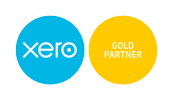
If you want to know how serious someone is about something, a good way to find out is to ask them what they measure.
The more you measure, the more you care.
The more you measure, the more you care
If you want to know how serious someone is about something, a good way to find out is to ask them what they measure.
The more you measure, the more you care.
Professional athletes are the perfect example.
As a kid you may have ridden your bike around the streets. Chances are you didn’t measure anything, not your speed, not your distance, not a thing. There’s absolutely nothing wrong with this, you rode for fun and there was no need to buy a bike computer and measure a single statistic. On the other hand, ametuer cyclists that ride on a regular basis will measure basic statistics. They’ll measure their speed and distance at a minimum, after all what’s the point of riding 100km if you can’t tell your non-cyclist friends how many kilometers you rode last weekend.
This is true of all sports. School yard soccer involves little to no measurement however an ametuer soccer league will record games played, wins, losses, best on ground so on.
As athletes become professional, what they measure, how they measure and how the results are then analysed and used differs enormously to amateurs.
A professional cyclist will measure their heart rate, the power they are putting out in every pedal stroke and will even gather statistics on power imbalances between the left and right feet. This information is instantly passed onto their coaches after every ride with the data then used to create training programs and even strategies for race day.
Sport can be a great analogy for life and the analogy above can be applied to business.
When a business is starting out it may measure the basic financial information that is required such as sales, expenses and asset purchases.
As a good business matures what they measure, how they measure and how the results are then analysed and used also matures. Examples include:
Accounting software - world class, cloud-based accounting software such as Xero.
Chart of accounts - meaningful and structured chart of accounts
Divisional accounting - the ability to produce profit and loss statements for different divisions and/or locations.
Non-financial KPIS - such as number of leads, number of new clients, quality review marks, etc
These results are then analysed on a regular basis, usually monthly or at a minimum quarterly and are then used to make data driven decisions that move them towards their goals.
As Chartered Accountants, Hailston & Co are experts in measuring financial performance. If you would like assistance with your measurement tools, please give the office a call.



